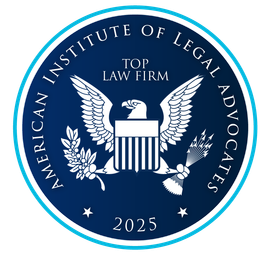
WELCOME TO BATARSEH PAMMER PLLC
When it's time for the hammer, call Batarseh Pammer.
01 DIVORCE
Facing divorce is never easy, but at Batarseh Pammer PLLC, we're here to support you every step of the way with personalized legal solutions tailored to your unique situation. Whether you're navigating issues of equitable distribution or child custody, our experienced team is ready to guide you through the process with compassion and confidence.
02 FAMILY LAW
Navigating family law matters requires a compassionate and experienced legal team. At Batarseh Pammer PLLC, we're dedicated to providing personalized solutions tailored to your family's unique needs.
03 CRIMINAL DEFENSE
When facing criminal charges, having the right legal representation is crucial. At Batarseh Pammer PLLC, our experienced team is committed to providing aggressive defense strategies to protect your rights and achieve the best possible outcome for your case.
04 TRAFFIC LAW
Navigating the complexities of traffic law demands knowledgeable and dedicated legal representation. At Batarseh Pammer PLLC, our experienced attorneys are here to guide you through the process and help minimize the impact of traffic violations on your life.
ABOUT US
Welcome to Batarseh Pammer PLLC: Your Trusted Legal Partners
Welcome to Batarseh Pammer PLLC, where your legal needs are our top priority. Nestled in the heart of Hauppauge, New York, our firm is dedicated to providing aggressive representation combined with compassionate support for clients throughout Suffolk County, Nassau County, Queens County, and beyond. From the moment you reach out to us, you'll experience the difference – no automated systems here, just a warm voice ready to assist you.
Our Commitment to You: Advocacy and Compassion
Our philosophy is simple: fiercely advocate for our clients while alleviating the stress and anxiety often associated with legal matters. Whether you're facing a complex divorce, navigating family law issues, or dealing with criminal charges or traffic violations, our experienced team is here to guide you every step of the way. At Batarseh Pammer PLLC, you're not just another case – you're part of our family.
Contact Us Today: Your Journey Starts Here
Ready to take the first step towards resolving your legal challenges? Contact Batarseh Pammer PLLC today to schedule a consultation with one of our experienced attorneys. Let us put our knowledge, experience, and dedication to work for you and help you achieve a positive outcome for your case. Your legal journey starts here, and we're here to walk alongside you every step of the way.
CLIENT TESTIMONIALS
"Used them to settle a custody battle. George is great at his job and would even call me at 8pm... 9pm sometimes if need be. Michelle is seriously the best paralegal ever! George give that girl a raise!!!! Thank you guys for taking care of me through these 18 months. I hope you aren't reading this review cause that means something terrible is going on in your life. But if you are I would put your trust in these guys."
Andrew Z.
NEWS


CONTACT US TODAY
At Batarseh Pammer PLLC, we understand the gravity of legal matters and the impact they can have on your life. With our team of experienced attorneys dedicated to providing personalized attention and vigorous representation, you can trust that your case will be handled with the utmost care and expertise.
QUICK LINKS
PRACTICE
T: (631) 982-9010
SMS: (631) 910-7988
F: (631) 982-1919
150 Motor Parkway, Suite 119
Hauppauge, NY 11788



